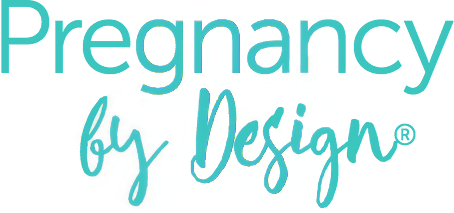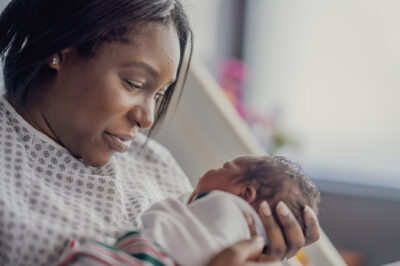Have You Ever Wondered What Labor Will Be Like for You?
How am I going to be in labor? The fact that we even ask this question shows that we intuitively know labor is different for everyone. Research confirms that several personal factors—unique to each person — can affect how labor is experienced. Understanding these factors helps you learn the tools you specifically need to cope well and navigate labor’s challenges.
The personal factors that influence the birth experience include your personality traits, your level of fear about childbirth, and the amount of birth knowledge you have. In this article, we’ll explore how your personality and childbirth experience are connected and how awareness can help you prepare for labor.
Why Personality Matters in Childbirth
Your personality traits influence more than daily life—they can shape how you experience labor, pain, and satisfaction during childbirth. The birth experience plays an important role in mother–baby bonding, breastfeeding success, and even maternal mental health.
With growing research on personality traits and childbirth, women now have an opportunity to anticipate and positively influence how they might experience labor.
Personality is made up of deeply ingrained patterns of thinking, feeling, and interacting with others. While these traits are fairly stable over time, they can be strengthened or balanced with the right tools and preparation. Learning how personality affects childbirth allows you to use your natural strengths while addressing areas that may make labor more challenging.

Key Personality Traits That Influence Labor
Research has identified three main personality traits that seem to play a key role in childbirth: Control, Flexibility, and Assertiveness. These traits are derived from the “Big Five” personality model but have been adapted in our Birth Profile Assessment to be practical and relevant to birth preparation.
Control — The Planner and the Driver’s Seat Personality
Control relates to the research trait of Conscientiousness. Think of someone who is goal-oriented, proactive, and believes she can influence her circumstances. She prefers to be in charge and comes prepared—birth plan, essential oils, comfort tools, and all.
Studies show a positive correlation between higher conscientiousness and greater birth satisfaction (Conrad & Stricker, 2018; Goodman et al., 2004). However, excessive control can lead to frustration if birth doesn’t follow expectations, creating a potential negative correlation between rigidity and satisfaction.
However, high level of control can also make it harder to surrender to labor’s unpredictability. Birth is not a checklist—it unfolds on its own timeline. For this personality type, the key is to focus on what you can control (your breathing, mindset, and comfort measures) and practice letting go of what you can’t.
Flexibility — Adapting to the Flow of Labor
Flexibility reflects the research trait Openness to Experience—the ability to adapt and welcome new experiences. Research shows that women who score higher in openness often report greater birth satisfaction (Catala et al., 2019).
A flexible woman may more easily accept labor sensations and changes in her birth plan. A less flexible woman might need more mental and physical tools—like birth affirmations or visualization—to help her surrender to contractions and adapt to unexpected turns in labor.
By understanding where you fall on the flexibility spectrum, you can strengthen your focus if you’re highly open or learn coping strategies if you’re less so.
Assertiveness — Communicating Your Needs During Birth
Assertiveness comes from the research trait Extraversion—the ease of connecting and communicating with others. Studies show that women who are more assertive tend to have higher birth satisfaction and even lower rates of cesarean and complications (Johnston & Brown, 2013).
Being assertive helps you express your needs clearly to your birth team and ensures you feel heard and respected during labor. For women who are naturally quieter or less assertive, practicing communication skills and collaborative care tools can be empowering.
Feeling confident to speak up—whether about your comfort, birth plan, or concerns—can significantly improve your overall childbirth experience.
Can You Change How Personality Affects Birth?
Personality is generally considered stable over time, but that doesn’t mean you’re stuck with its challenges. With awareness and practice, you can adapt your reactions and mindset to have a more positive birth.
By identifying your personality tendencies early, you can learn labor coping strategies that fit your natural strengths. For instance, if you’re highly controlling, mindfulness or relaxation tools may help. If you’re less assertive, learning communication techniques can boost confidence.
Tools to Help You Prepare Based on Personality
At Pregnancy by Design, we developed the Birth Profile Assessment to help you understand your unique personality traits and how they may influence your birth experience. Our resources teach you how to use your strengths and balance areas that might cause stress during labor.
The assessment is included free with our Beyond the Birth Plan Childbirth Course, which combines personalized insights with evidence-based tools for birth preparation.
The Bottom Line
Every woman’s labor experience is unique—but knowing your personality can help you prepare for it with confidence. By understanding how traits like control, flexibility, and assertiveness affect your childbirth experience, you can use your natural strengths to create a calmer, more empowered birth.
FAQ: Personality and Childbirth
Q: Can my personality really affect how I experience labor?
Yes. Research shows that traits like control, flexibility, and assertiveness can influence your perception of pain, satisfaction, and birth outcomes.
Q: How can I prepare for birth based on my personality?
Take the Birth Profile Assessment to learn your strengths and focus on areas that may require attention to help you best prepare for a positive birth experience.
Q: What personality type handles labor best?
There’s no one “best” type. Each personality brings unique advantages—awareness and preparation are what make the biggest difference.
Cited Research
Catala, P., Peñacoba, C., Carmona, J., & Marin, D. (2019). Do maternal personality variables influence childbirth satisfaction? A longitudinal study in low-risk pregnancies. Women & Health. https://www.ncbi.nlm.nih.gov/pubmed/31084348 Conrad, M., & Stricker, S. (2018).
Personality and labor: a retrospective study of the relationship between personality traits and birthing experiences. Journal of Reproductive & Infant Psychology, 36(1), 67–80. https://www.tandfonline.com/doi/abs/10.1080/02646838.2017.1397611?journalCode=cjri20
Fleissig, A. ( 1993) Are women given enough information by staff during labour and delivery? Midwifery 9, 70– 75. Heinze, S. D., & Sleigh, M. J. (2003). Epidural or no epidural anaesthesia: relationships between beliefs about childbirth and pain control choices.
Journal of Reproductive and Infant Psychology, 21(4), 323–333. https://www.tandfonline.com/doi/abs/10.1080/02646830310001622132 Johnston, R. G., & Brown, A. E. (2013).
Maternal trait personality and childbirth: The role of extraversion and neuroticism. Midwifery, 29(11), 1244–1250. https://doi.org/10.1016/j.midw.2012.08.005 Kwissa-Gajewska, Z., & Dołęgowska, M. (2017).
Personality, cognitive appraisal and labor pain. Health Psychology Report, 5(4), 304–313. https://www.termedia.pl/Personality-cognitive-appraisal-and-labor-pain,74,29915,0,1.html Mackey, M.C. ( 1995).
Women’s evaluation of their childbirth performance. Maternal-Child Nursing Journal 23, 57– 72. Simkin, P. ( 1991).
Just another day in a woman’s life? Women’s long‐term perceptions of their first birth experience. Part I. Birth 18, 203– 211. Simkin, P. ( 1992).
Just another day in a woman’s life? Part II. Nature and consistency of women’s long‐term memories of their first birth experiences. Birth 19, 64– 80. Walker, J.M., Hall, S. & Thomas, M. (1995).
The experience of labour: A perspective from those receiving care in a midwife‐led unit. Midwifery 11, 120– 129.
Disclaimer
Pregnancy by Design’s information is not a substitute for professional medical advice or treatment. Always consult your healthcare provider about any health concerns you may have.



 1st Trimester of Pregnancy
1st Trimester of Pregnancy






Leave a Reply